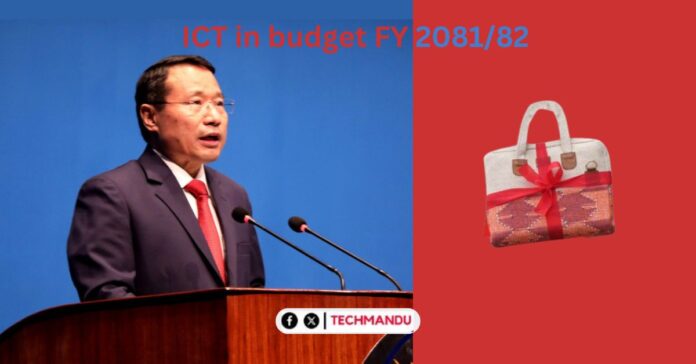The government of Nepal has adopted various key plans, policies, and programs for the upcoming Fiscal Year FY 2081/82. Barshaman Pun, the Finance Minister unveiled the government’s 1.86 trillion budget for various plans for digital technologies on Tuesday, Jestha 15, 2080 which will further strengthen the country’s roadmap for digital transformation. From the online application of visa services to contactless, faceless public services, and startup funds, here is everything you need to know:
ICT plans in Nepal budget FY 2081/82
Here are all the ICT plans in budget FY 2081/82 for Nepal:
- Starting off his speech, Finance Minister Pun said that the government will forward its plans to make Nepal an IT hub. He said that the ICT industry will be treated as a backbone for the national economy. The next FY’s plans greatly emphasize youth empowerment. As Mr. Pun announced, a job bank will be established for students after they pass their Grade 12 education.
- Likewise, the government targets to export IT services worth Rs 30 billion in the next ten years. This is bold and ambitious but also quite achievable Nepali ICT youths harbored Rs 67 billion in 2022 selling ICT services. Do find: Nepali Startups To Get Up To Rs 25 Lakh Startup Loan, How to Apply?
- Further, Mr. Pun said that internship opportunities will be provided to students of bachelor’s and master’s levels. The next decade will be an IT decade for Nepal. Mr. Pun said that the upcoming fiscal year will mark a start to the IT decade from 2081 to 2091 BS.
- Nepal Startup Trust will be established to promote the growth of entrepreneurship and also for their regulation. Incubation centers will be opened across seven provinces to materialize ideas into businesses.
- In line with a similar youth-centric sentiment, Mr. Pun highlighted that public agencies will prioritize using made-in-Nepal software.
- National ID cards will be incorporated into many government services such as PAN, social security, driving license, etc.
- An online system will be developed where citizens can apply for visas online (e-Visa). Currently, foreigners can apply for visas online while coming to Nepal. It’s extending to the Nepali public too.
- To enrich banking services, electronic banking (mobile banking, internet banking) services will be made more accessible in rural and remote areas. E-Governance will integrate AI to make services faceless, cashless, and, contactless. The government will create interoperability between online systems used by taxpayers and revenue administrations and details submitted through the taxpayers’ portal will also be submitted via an API.
- To bridge the gulf of the digital divide, ICT access will be made easier for people for the underserved, in remote regions, and women.
- It will get easier to receive taxpayers’ certificates. Those with no tax dues can get a tax certificate online with a QR code.
- Customs officers can use their digital signatures in declaration letters.
- The government will study the feasibility and other aspects of the much anticipated poday transport system. This paves way for the Podway Nepal to coordinate with the government to constrict the ropeway system in Kathmandu.
- The government will connect all the community schools, health centers, and ward centers with broadband internet. It’s cooperating with NTA, and various internet service providers to connect the public bodies. Don’t miss: Electric Vehicles tax in Nepal: Budget FY 2081/82 Latest
- The Digital Nepal Framework will be revised for its more effective implementation and regulation. The government has sanctioned a Rs 59 crore budget for this project.
- Government and private buildings in Kathmandu and Butwal will be used to build IT parks. These facilities will have round the clock supply of electricity, internet, and security. Free areas will be provided to operate workstations for three years.
- Similarly, public and private cooperation will be stressed to render an IT hub in Kathmandu with a multi-story building in Charkhal, Dillibazar, Kathmandu.
What were the highlights for you? Do you think the budget plans reflect tangible and satisfying efforts to prop up the ICT industry in Nepal? Share your opinion in our comments below.



